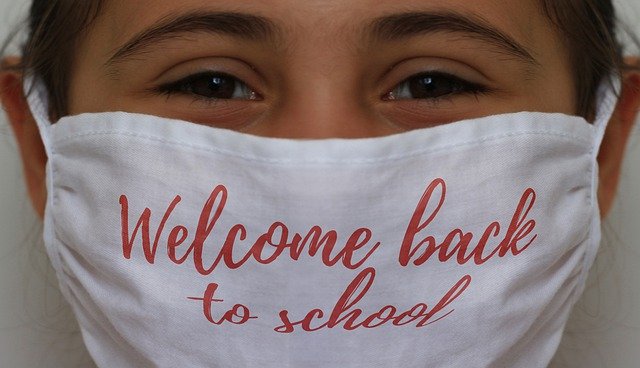
While children may not understand the full scope of the COVID-19 pandemic, they do know that the world is different. In many cases, they left school in March or April to continue learning virtually—and many finished their school years from home. As schools welcomed students back last month, children who are attending in-person may have concerns about returning to school during the pandemic, wondering why school looks different and whether it’s safe for them and their family.
The Centers for Disease Control and Prevention (CDC) has issued recommendations and talking points that parents and other trusted adults can use to help children make sense of what they hear in a way that is honest, accurate and minimizes anxiety or fear.
Talking to Children About Returning to School
Children who are returning to school in-person may worry about themselves, their family and friends getting ill with COVID-19. Use these tips to talk to children about going back to school:
- Remain calm. Remember that children will react to both what you say and how you say it. They will pick up cues from the conversations you have with them and with others.
- Reassure children that they are safe. Let them know it is okay if they feel upset. Share with them how you deal with your own stress so that they can learn how to cope from you.
- Make yourself available to listen and to talk. Let children know they can come to you when they have questions.
- Avoid language that might blame others and lead to stigma.
- Pay attention to what children see or hear on television, radio or online. Consider reducing the amount of screen time focused on COVID-19. Too much information on one topic can lead to anxiety.
- Provide information that is truthful and appropriate for the age and developmental level of the child. Talk to children about how some stories about COVID-19 on the internet and social media may be based on rumors and inaccurate information. Children may misinterpret what they hear and can be frightened about something they do not understand.
- Teach children everyday actions to reduce the spread of germs. Remind children to wash their hands frequently and stay away from people who are coughing, sneezing or sick. Also, remind them to cough or sneeze into a tissue or their elbow, then throw the tissue into the trash.
- If school is open, discuss any new actions that may be taken at school to help protect children and school staff.
In addition to talking to your children about returning to school, you may need to talk to them about COVID-19 in general.
Talking to Children About COVID-19
Depending on how old the child or children are, they may not know much about COVID-19. Try to keep information simple and remind them that health and school officials are working hard to keep everyone safe and healthy.
Use these talking tips to explain the disease:
- COVID-19 is the short name for coronavirus disease 2019. It is a new virus. Scientists and doctors are still learning about it.
- Recently, this virus has made a lot of people sick. Scientists and doctors are trying to learn more so they can help people who get sick.
- Doctors and health experts are working hard to help people stay healthy.
Use these talking tips to explain what happens if someone gets sick with COVID-19:
- COVID-19 can look different in different people. For many people, being sick with COVID-19 would be a little bit like having the flu. People can get a fever or cough, or have a hard time taking deep breaths. Most people who have gotten COVID-19 have not gotten very sick. Only a small group of people who get it have had more serious problems.
- If you do get sick, it doesn’t mean you have COVID-19. People can get sick from all kinds of germs. What’s important to remember is that if you do get sick, the adults at home will help get you any help that you need.
Some children may have additional questions about the disease. It’s important that parents and other trusted adults try to answer these questions instead of avoiding them. The CDC’s COVID-19 website provides extensive information about COVID-19 that parents can use when talking to their children about the COVID-19 pandemic.
Need help with afterschool child care? How about remote learning assistance? Whatever your need, we’ll find a professional, experienced caregiver to work safely in your home. Contact us at (518) 348-0400 and let us know how we can make your life easier.
© 2020 Zywave, Inc. All rights reserved.
